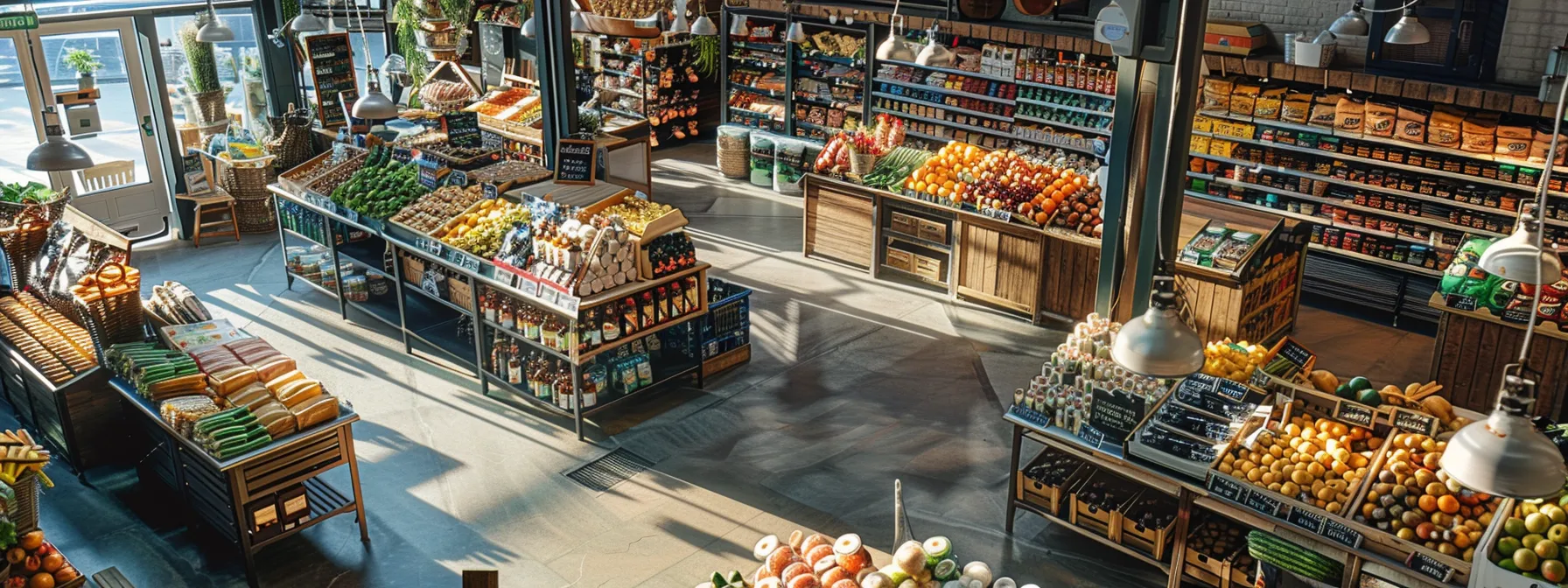Starting a boutique grocery store can be an exciting venture for anyone with a passion for providing quality, unique food products to a local community. Navigating the complex landscape of retail food sales requires a deep understanding of the market, meticulous planning, and a committed vision. Success depends on many factors, including store location, product selection, customer service, and savvy marketing. In this article, we’ll outline the resources and strategies needed to open and run a thriving boutique grocery store.
Essential Steps to Open a Boutique Grocery Store
Opening a boutique grocery store begins with thorough research to understand the target market and competition. This includes identifying consumer needs that are unmet by current retailers and possibly finding a niche market to cater to. Crafting a detailed business plan comes next and is crucial for mapping out the financials, marketing strategies, and operational logistics of the store, along with finding the best press release services.
Securing funding is one of the most critical steps in opening a boutique grocery. Various options are available, such as small business loans, investors, or personal savings. It is also important to choose an appropriate business structure, register the business, and obtain necessary permits and licenses that comply with local, state, and federal regulations.
Incorporating technology into the business operation can streamline processes and enhance the customer experience. Implementing a reliable grocery POS software system can help manage inventory, process transactions, and analyze sales patterns. Such software can also assist in creating an efficient checkout process, which is crucial for customer satisfaction.
Sourcing Unique Products for Your Boutique Grocery
Finding and securing a range of unique products can set your boutique grocery apart from larger competitors. This involves curating a selection that appeals to your target market’s preferences for organic, locally-produced, or specialty international items. Establishing direct relationships with local farms and artisanal producers can ensure the freshness and quality that boutique shoppers often seek.
Attending food trade shows and working with food distributors who specialize in niche products can provide access to a variety of goods that may not be available through mainstream channels. Engaging with the local food community through events and farmers’ markets can also help in discovering new products to stock on your shelves.
Having a robust inventory system in place is vital to keep track of what sells well and what doesn’t. This data can guide future product sourcing decisions. Rotating your product offerings and introducing customers to new tastes can keep the shopping experience exciting and encourage repeat visits.
Marketing Strategies for Boutique Grocery Success
Effective marketing can drive foot traffic and build brand loyalty for a boutique grocery. Developing a strong brand identity and communicating it through multiple channels such as social media, local advertising, and community events is essential. Tailoring marketing campaigns to highlight the store’s unique offerings can also create a compelling value proposition.
Creating partnerships with local businesses and engaging with community initiatives can enhance the store’s profile and embed it into the local culture. Offering cooking classes, food tastings, or supporting local charity events can create positive exposure and foster community connections.
Loyalty programs and email marketing can encourage repeat business and provide a way to communicate directly with customers. Special promotions, discounts, and exclusive events for loyal customers can also incentivize shopping and increase basket sizes.
READ ALSO: What Is Black Car Service and Why It’s Worth Considering
Managing Inventory and Supplier Relationships in Your Grocery Store

A well-managed inventory is the backbone of any successful grocery store. Keeping track of stock levels ensures that popular items are always available while minimizing wastage on perishable goods. Regular analysis of sales data can help predict inventory needs and optimize reorder quantities.
Using sophisticated inventory management systems can save time and reduce errors. These systems can provide real-time insights into stock levels, automate reordering processes, and forecast needs based on seasonal trends or promotional activities. They are an investment that typically pays off in terms of operational efficiency.
Overall, opening a boutique grocery store offers a unique opportunity to deliver an individualized shopping experience that appeals to discerning customers. By focusing on strategic planning, careful product selection, thoughtful marketing, advanced inventory management, and strong supplier partnerships, entrepreneurs can create a shopping destination that stands out in the market. Nurturing these aspects of the business will not only drive growth but also establish lasting relationships with the community and the suppliers.
YOU MAY ALSO LIKE: Beekeeping Wholesale: Supplying the Tools of the Trade at Scale











